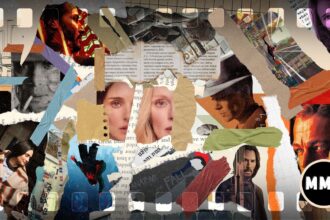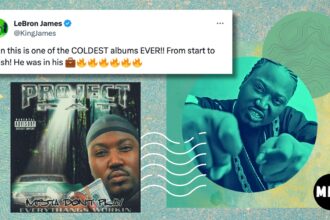Book of Secrets opens innocuously, promising to be a successor to the first film. Dancing between the assassination of Abraham Lincoln and Ben Gates’ paternal great-grandfather deciphering a code to find treasure, the first five minutes set up what could be a rather dramatic and action-filled romp trying to find the familial treasure.
When the movie jumps to the present, however, we as the audience are immediately confronted with an almost entirely different protagonist than the amateur cryptologist-turned-treasure hunter from the original National Treasure. The main antagonist for the movie, Mitch Wilkinson, procures a page from John Wilkes Booths’ diary with Gates’ ancestor’s name on it, potentially tarnishing his family’s reputation (the fact that this evidence is circumstantial and that it’s entirely irrelevant to multi-millionaire Benjamin Gates’ life is never addressed).
The Civil War as a backdrop and crux for the film’s plot is an interesting—if somewhat unsurprising—choice for the movie. I had the unique opportunity to go to a K-12 charter school funded by a private college that sports the Bible in a list of required “Great Books in the Western Tradition,” in which the American History class taught that the Civil War, and specifically the 13th Amendment as law, made the “American Experiment more perfect.”
Ben Gates’ grandpa’s reputation being tarnished is classic American Exceptionalist rhetoric that has been used by reactionary elements in American politics to shift attention away from systematic racism, economic crises, and institutional injustice since the Reagan administration. Book of Secrets seems to be immediately playing off the perspective of the Bush-era hard right, but that perspective gets pretty muddy soon.
About 10 minutes into the film, we get our first good look at our protagonist. Gates, in order to steal the page from Booth’s diary, enlists his sidekick from the first movie (Riley) to break into his ex-girlfriend (Abigail’s) house. He proceeds to spend the breaking-in sequence making snarky one-liners and bribing Abigail for the diary.
Gates is consistently portrayed throughout the film as a narcissist who will do anything to get what he wants with no consideration for the wellbeing of anyone else, as he talks down to Riley while he monologues about clues, screams at Abigail in a museum as a distraction, and yells at a child to defend his grandfather’s honor. The movie will not address this but will still present him as heroic and empathetic.
The next clue comes from Booth’s diary, leading them to France to investigate the Île aux Cygnes for their next step. After finding an inscription on the statue that leads them to the Resolute desks in Buckingham Palace and the White House (through a very shaky translation by French police bystanders), Gates’ father Patrick is attacked by some goons employed by Wilkinson (revealed to be an imperialist war criminal whose motivation is to be remembered as a “great man” by history) to steal information for the treasure hunt.
Wilkinson knew where to look for the clues because Abigail gives him the page, but tries to avoid giving him the cipher for an unexplained reason. Both women and the only Black character in the film collaborate with the villain, and it’s difficult to tell if it’s merely the unconscious bias of the writers? Or if this is a nod to the boomer paleoconservative crowd? But either way, it’s extremely difficult to watch every time it happens.
The first desk gives them a tablet with inscriptions in “ancient Native American” (later revealed to be Olmec), a priceless artifact Gates handles without any protective measures and throws into a river as a distraction. The tablet is broken, so they make their way for the second Resolute desk in the Oval Office. The search turns towards a secret President’s book, introduced seemingly just to appeal to the conspiracy theorist crowd, which Gates thinks will be easiest to get by kidnapping the President and asking nicely for help.
After manipulating booking for various historical landmarks and cornering him during his birthday party at Mount Vernon (complete with a Randy Travis cameo), Gates convinces the President to give him the location of the book. In a movie filled with wild clues that lead to mythical secrets that are impossible to believe, something about this scene, and specifically the speech Gates gives to the President, is absolutely surreal.
“[B]ecause you’re the president of the United States, sir. Whether by innate character, or the oath you took to defend the Constitution, or the weight of history that falls upon you, I believe you to be an honorable man, sir.”
At first glance, this feels like nothing more than sappy patriotism, but something about its directness feels absurd to me. In high school, students were as likely to hear about the beauty, truth, and genius of the Framers (the near-religious moniker many constitutionalists use for the Founding Fathers) for writing such a perfect document as the Constitution in one class as the fantastic exploits of certain Presidents (often a Washington-Lincoln-Eisenhower trifecta, but the specifics varied to be convenient for the course material) made possible by the amazing and revolutionary time they were born into. The worship of the American political system is a bizarre and incoherent one, and to see a movie represent the contradictions in patriotism is almost unbelievable.
From here, they swing by the Library of Congress and then hit the road for Mount Rushmore, where the final clue for the ever-important “ancient Native American” treasure that could clear Gates’ name (the movie is over halfway finished and there has been no explanation of how discovering a city of gold that the Confederacy might have searched for would clear the Gates name; unsurprisingly, there won’t be one) hidden under Mount Rushmore (how they got an entire Mexican city underneath an already popular park in South Dakota is, of course, also not mentioned).
Overall, the last half of the movie is relatively uninteresting, mostly arguments between Ben’s parents, Abigail and Ben flirting, and mediocre action scenes. The dialogue is less interesting than the first half (which is saying a lot for this movie) besides a fantastic moment in which Wilkinson tells Riley that “this isn’t a democracy” before pulling out a f*cking knife. Nothing much else happens beyond exploring underneath Mount Rushmore where we get a redemption speech from Wilkinson.
By this point in the movie, Wilkinson has attacked Patrick, threatened Emily, and repeatedly put bystanders in harm’s way. He’s been portrayed as a liar who is only interested in fame and glory and revealed to be a military contractor/black market artifact dealer. At the highest point of tension in the film, Wilkinson, the self-centered murderer, sacrifices himself heroically to save Gates’ life in exchange for Ben crediting him so he can be remembered as a great man by history.
The idea that history is shaped by larger-than-life heroes and leaders is also not new and is an important building block in a neoliberal educator’s toolbox. In my classical high school, we were taught history from a “top-down” approach, reading from the point of view of elites, monarchs, and, of course, the ever-important “Great Men.” Liberal democracy—as a capitalist system—is dependent on certain hierarchies to function, so idolizing the people on the top of hierarchies helps to maintain the status quo.
And the movie gives in. The heroes find the treasure, Gates (the toxic narcissist) and Abigail get back together, Riley hooks up with a groupie, and Gates credits Wilkinson. The movie concludes by celebrating the heroes stealing indigenous artifacts (despite Gates telling the President that the cultural artifacts would go to the descendants of the Olmec people), becoming even more ludicrously rich, and rewards a war criminal with the hero legacy he wanted.
National Treasure 2 is a flop of a movie and it’s not very fun to watch, but it shows relatively clearly how American liberal propaganda works. The rich colonizers are heroes in the movie, and the mercenary fascists are just misguided patriots trying to make history. The only thing The Book of Secrets is good at is being transparent, so at least we can get a dog whistle highlight reel.












